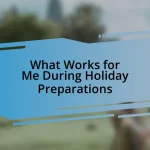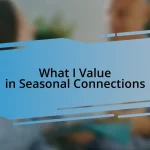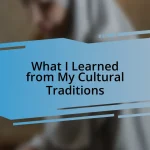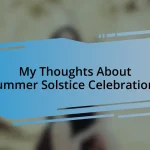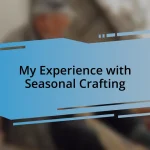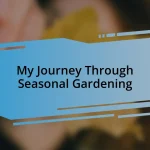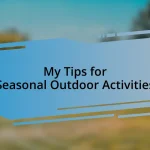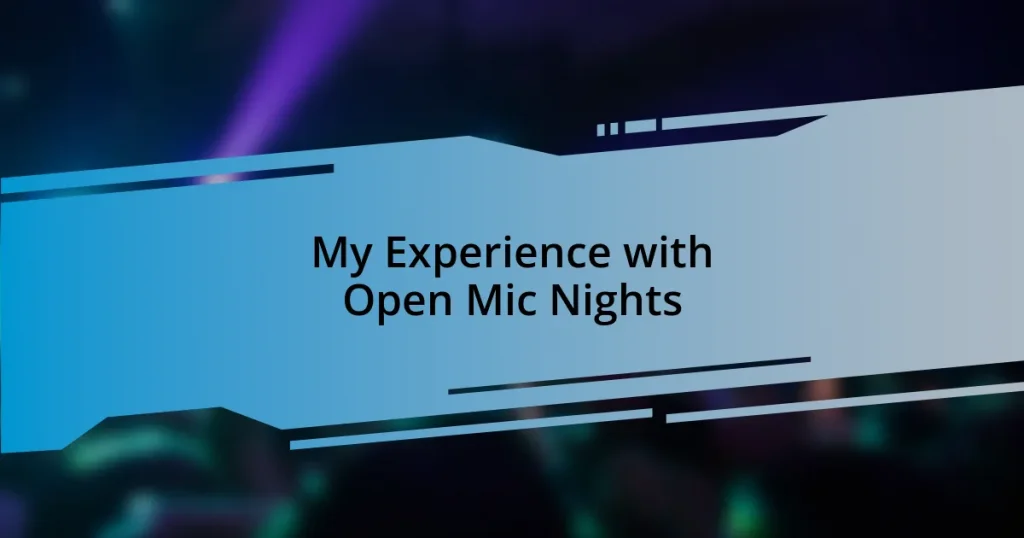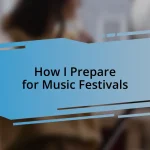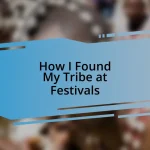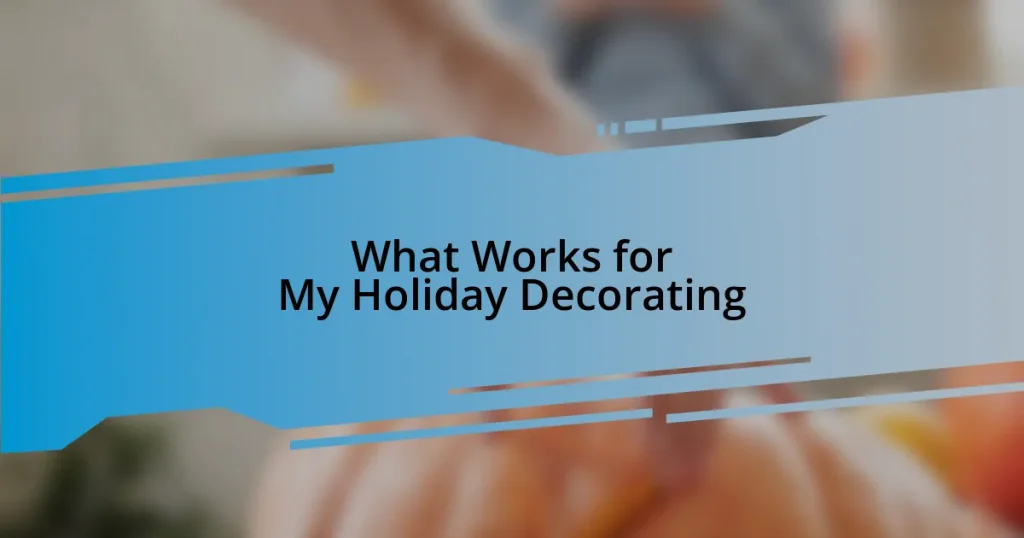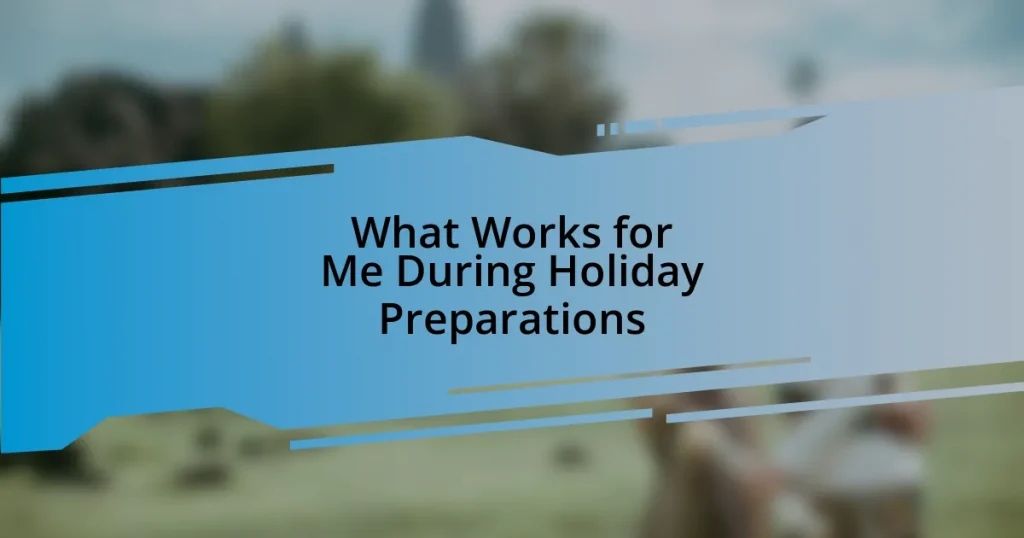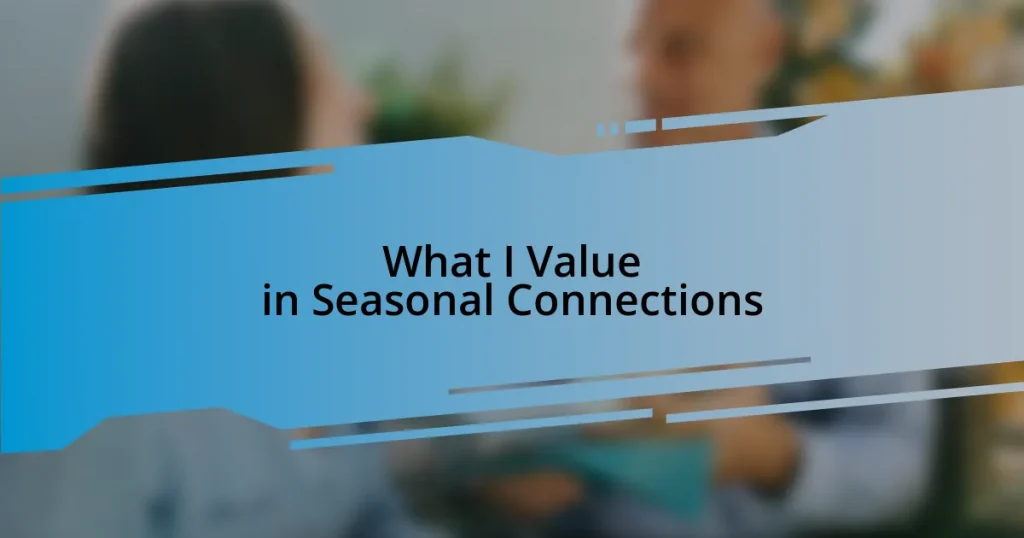Key takeaways:
- Open Mic Nights offer a platform for artists to share talents in a supportive community, fostering creativity and connections.
- Preparing involves selecting resonant material, practicing consistently, and visualizing the performance to build confidence.
- Engaging with the audience is crucial; personal stories and genuine interaction enhance the performance experience.
- Receiving and applying feedback can lead to artistic growth, encouraging performers to refine their approach and connect deeper with their audience.
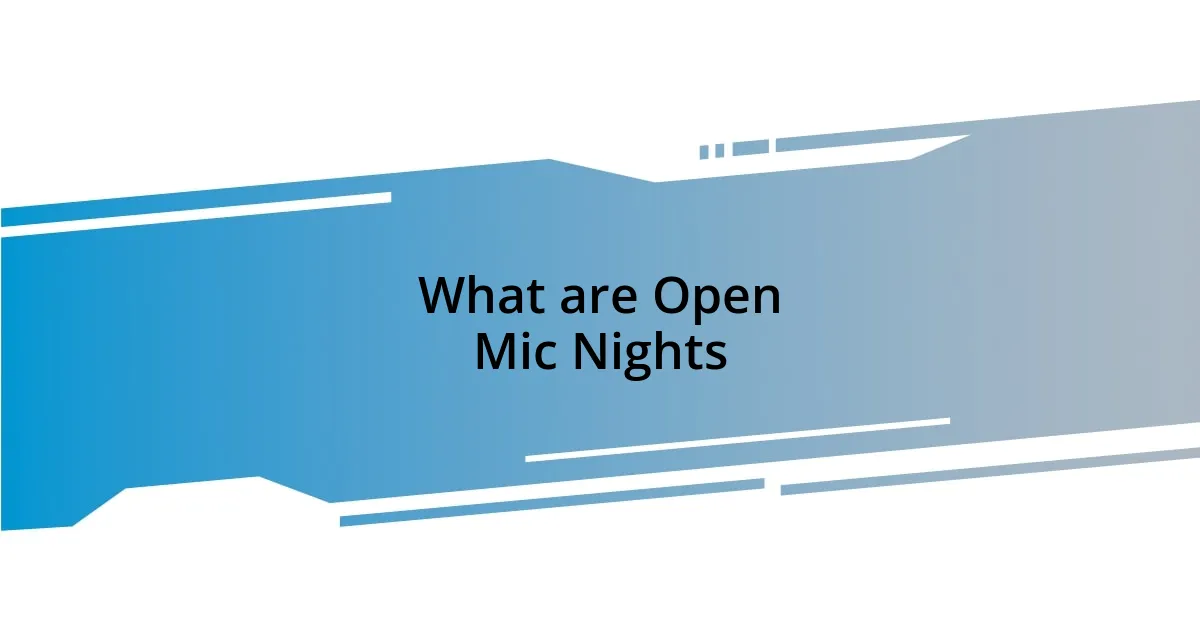
What are Open Mic Nights
Open Mic Nights are informal events where anyone can showcase their talents, whether it’s music, poetry, comedy, or storytelling. I remember the first time I stepped onto a tiny stage, my heart raced as I faced an audience ready to watch me pour my soul into a few songs. It’s a unique blend of excitement and vulnerability, where performers share their craft in a welcoming environment.
These nights typically take place in local cafes, bars, or community centers, providing a platform for emerging artists to express themselves. I often wonder how many great artists have been discovered during these humble gatherings. For me, it felt like a rite of passage, a space where creativity flows freely, and connections are made over shared experiences.
Open Mic Nights also foster a sense of community. I’ve met fellow performers who were just as eager and nervous as I was, and that mutual understanding created an instant bond. Watching others take the stage, I often found myself inspired to push my limits and try new styles or formats, which only enriched my journey as a performer.
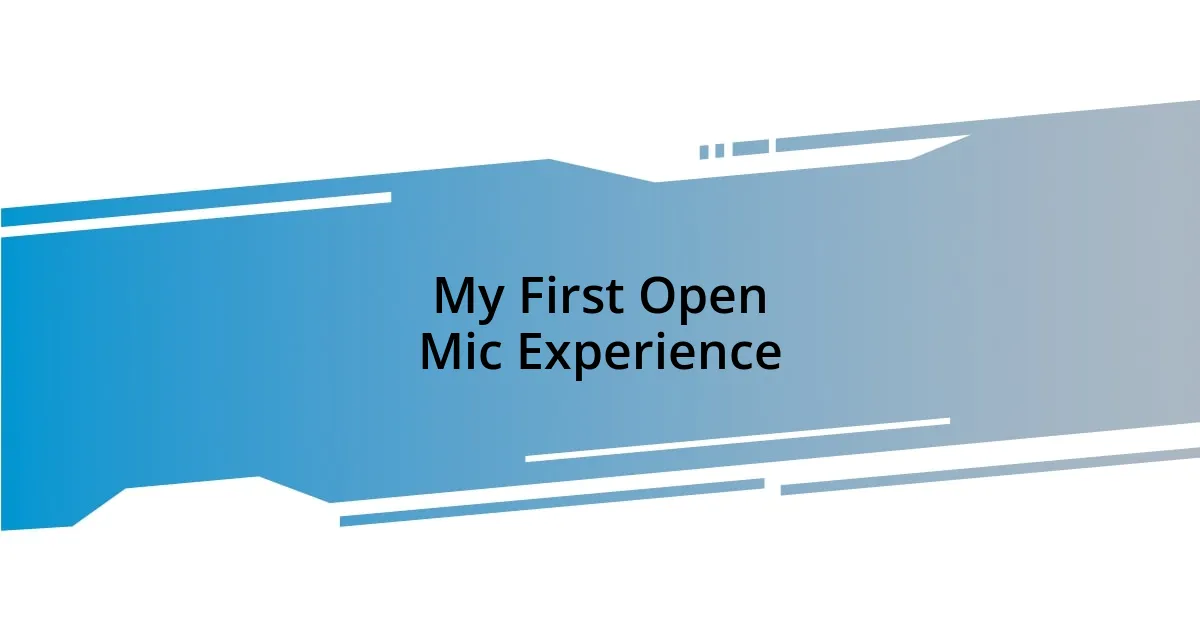
My First Open Mic Experience
When I think back to my first open mic experience, I can still feel the adrenaline rushing through my veins. I arrived early to get a good seat, yet the room was alive with chatter and laughter, adding to my nerves. When my turn came, I remember walking up to that small, shaky mic stand and suddenly forgetting every word of my favorite song—talk about a moment of panic!
Once I began strumming my guitar, the initial fear melted away. It’s incredible how music can create an instant connection. I spotted a few familiar faces in the crowd, which helped ground me. I even caught the eye of one audience member who nodded along, and that little smile made me feel more at home on that stage. It truly reminded me of how supportive the open mic community can be, with everyone rooting for each other to succeed.
Looking back, that experience taught me a valuable lesson about vulnerability and courage. Sure, I fumbled with a lyric or two, but nothing could overshadow the thrill of sharing my passion. I’ve since come to understand that it’s not about perfection; it’s about creating a moment, no matter how small, with the audience. Each performance became a stepping stone in my journey, reinforcing my love for music and the arts.
| Aspect | Details |
|---|---|
| Emotions | Adrenaline, nerves, excitement |
| Setting | Small, intimate venue |
| Audience | Supportive and engaged |
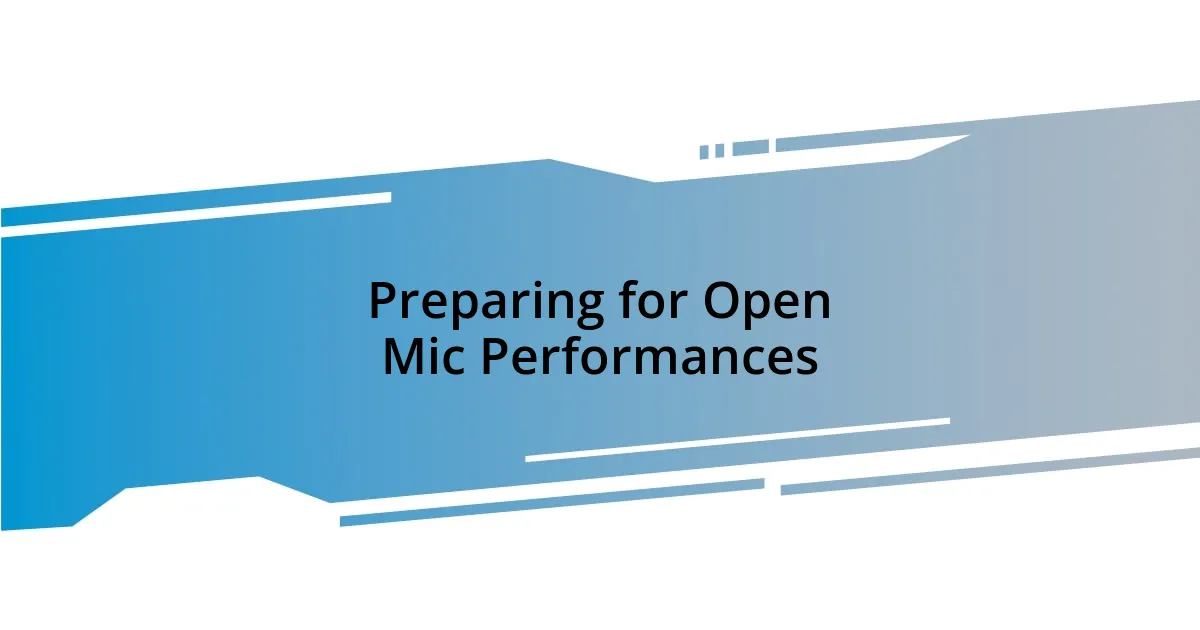
Preparing for Open Mic Performances
Preparing for an open mic performance can be both thrilling and nerve-wracking. I remember the nights leading up to it, rehearsing in front of my mirror, sometimes with my dog as my only audience. You might think practicing alone would feel awkward, but it helped me refine my performance while building my confidence. Here are some tips that worked for me:
- Choose the right material: Select pieces that resonate with you emotionally—those songs or poems that you can genuinely connect with.
- Practice, practice, practice: Perform for friends or record yourself to identify areas you want to improve.
- Visualize the performance: Picture yourself on stage, running through the emotions you want to convey to ground yourself before the big night.
As the date approached, I made sure to check the venue’s set-up, knowing how much a familiar space can ease pre-show jitters. I’d show up early to absorb the atmosphere and maybe even chat with other performers. That atmosphere can deeply influence your performance. Connecting with fellow artists made me feel part of a larger community, where everyone shared similar hopes and fears. On my last open mic night, chatting with a fellow musician who had also faced their share of stage fright reminded me just how universal this experience can be, making me feel less alone in my journey.
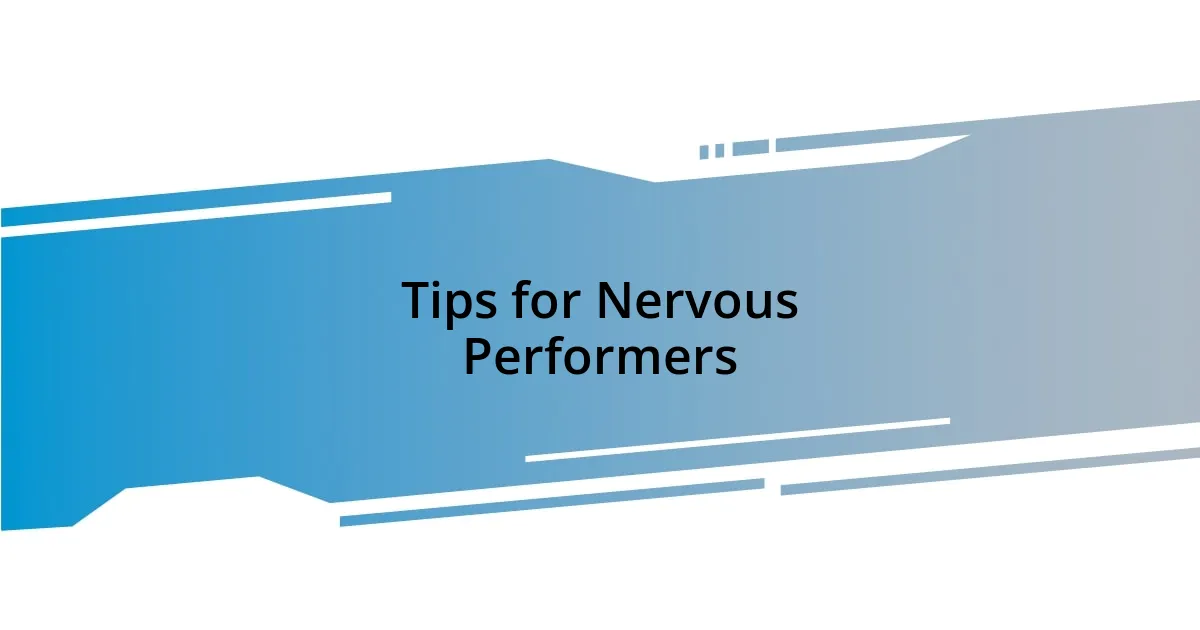
Tips for Nervous Performers
I remember my first time walking onto that stage, heart racing, palms sweaty. One tip that truly helped me was to focus on my breathing. Deep, slow breaths can steadily calm those frayed nerves. I’d often close my eyes for a moment before I started, inhaling deeply to ground myself before diving into the performance. Have you ever tried that? It made a world of difference for me.
Another strategy I found effective was to connect with the audience right from the start. Instead of just singing or reading, I began to share a little story related to my piece. It’s fascinating how a simple personal touch can break down that invisible wall of anxiety. I recall once mentioning why a song was meaningful to me—it transformed the atmosphere and encouraged genuine engagement. The audience turned from strangers into friends, making me feel at ease.
Lastly, I always remind myself: mistakes are part of the journey. During one performance, I completely lost my place and laughed it off, saying, “Well, I guess I’m just making my own remix!” The audience chuckled with me, and instead of feeling humiliated, I felt a connection. Embracing those imperfections turns nerves into genuine moments of shared humanity. What is your experience with handling mistakes on stage? Trust me, you’re not alone; we’ve all been there.
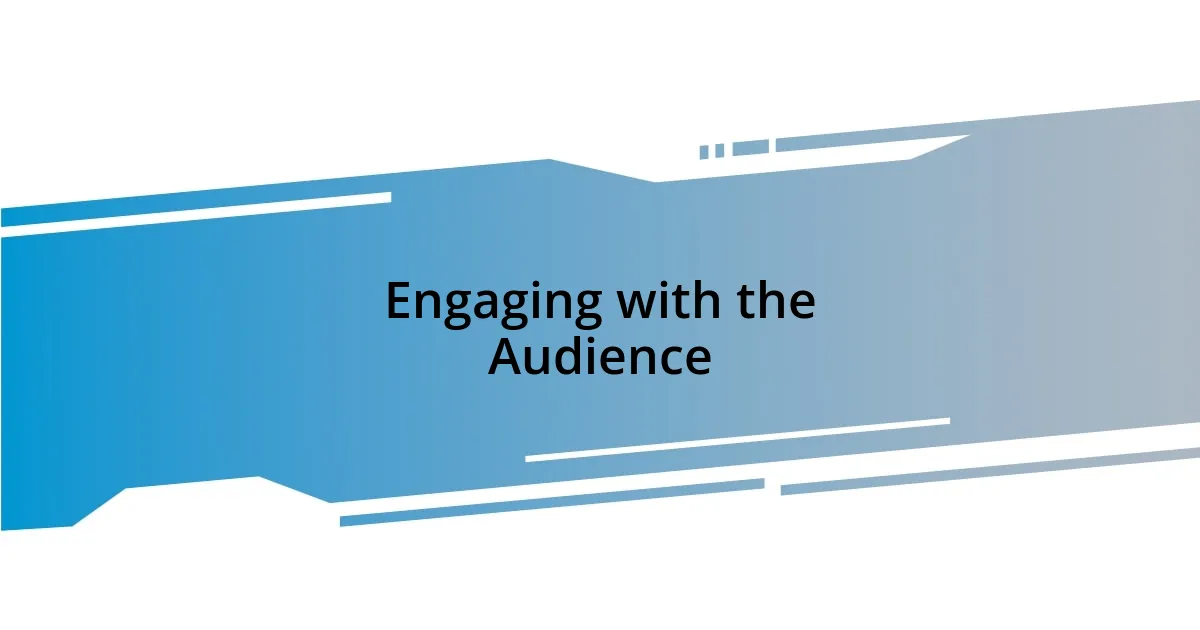
Engaging with the Audience
When I first started performing, I realized that engaging with the audience was just as important as the performance itself. One night, I noticed a small group laughing genuinely at my jokes; it was amazing how their energy lifted my spirits. Have you ever felt that instant connection when you see someone in the crowd nodding their head or smiling? It’s almost magical—it transforms the entire experience, turning a performance into a shared moment.
I often found that asking the audience questions or inviting their reactions infused my performances with life. One time, mid-song, I asked if anyone in the room had ever experienced similar feelings, and I was met with a chorus of nods and even some laughter. It felt like a conversation rather than a monologue. This shift can change not just your perspective but also how the audience perceives you; suddenly, you’re not just a performer—you’re a participant in their evening.
I’ve come to appreciate that charismatic engagement doesn’t have to be flashy. I remember a performance where I simply reached out to the audience with a heartfelt “thank you” for their support. The room filled with warmth; it made me realize that sometimes, being genuine is all it takes to create a deeper connection. Isn’t it intriguing how vulnerability can bridge gaps and draw people in? There’s power in that authenticity, and I believe it’s something every performer should embrace.
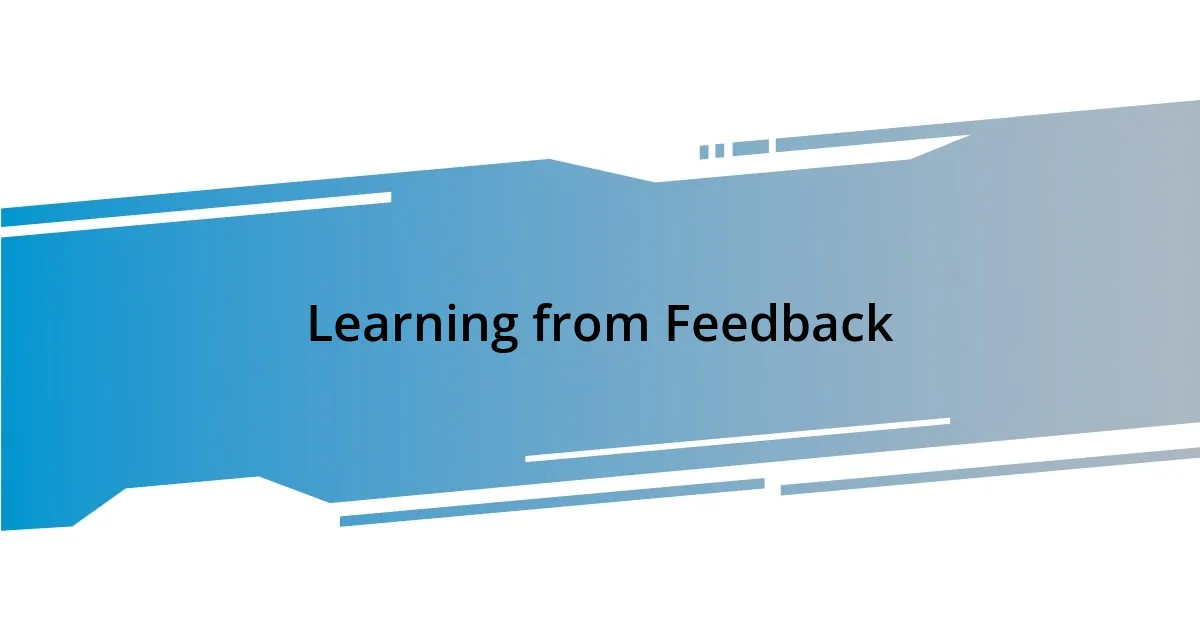
Learning from Feedback
Receiving feedback after a performance can feel daunting, but I’ve found it to be invaluable. One time, a fellow performer approached me and shared that they felt my set could use a stronger closing to leave the audience wanting more. At first, I was taken aback, but their perspective opened my eyes to a whole new way of thinking about my presentations. Have you ever received constructive criticism that shifted your approach? It’s moments like these that can propel your growth as an artist.
In another instance, someone appreciated the rawness of my performance but suggested that I refine my transitions between songs. Listening to that feedback inspired me to experiment with storytelling. I started weaving narratives between my pieces, and the audience began to connect more deeply with the emotions behind my songs. Have you ever tried to transform feedback into something creatively liberating? It’s a practice that not only enhances your performances but also keeps you engaged in your own artistry.
I’ve learned that feedback isn’t just critique; it’s a treasure trove of insights. After one open mic night, I gathered a group of friends and fellow performers to discuss what they thought worked well and what could be improved. Their candid reflections allowed me to see my performance through different lenses and embrace new ideas. I often wonder—how often do we pause to reflect on the wisdom shared by those around us? It’s a practice that can truly enrich our journey as performers.


